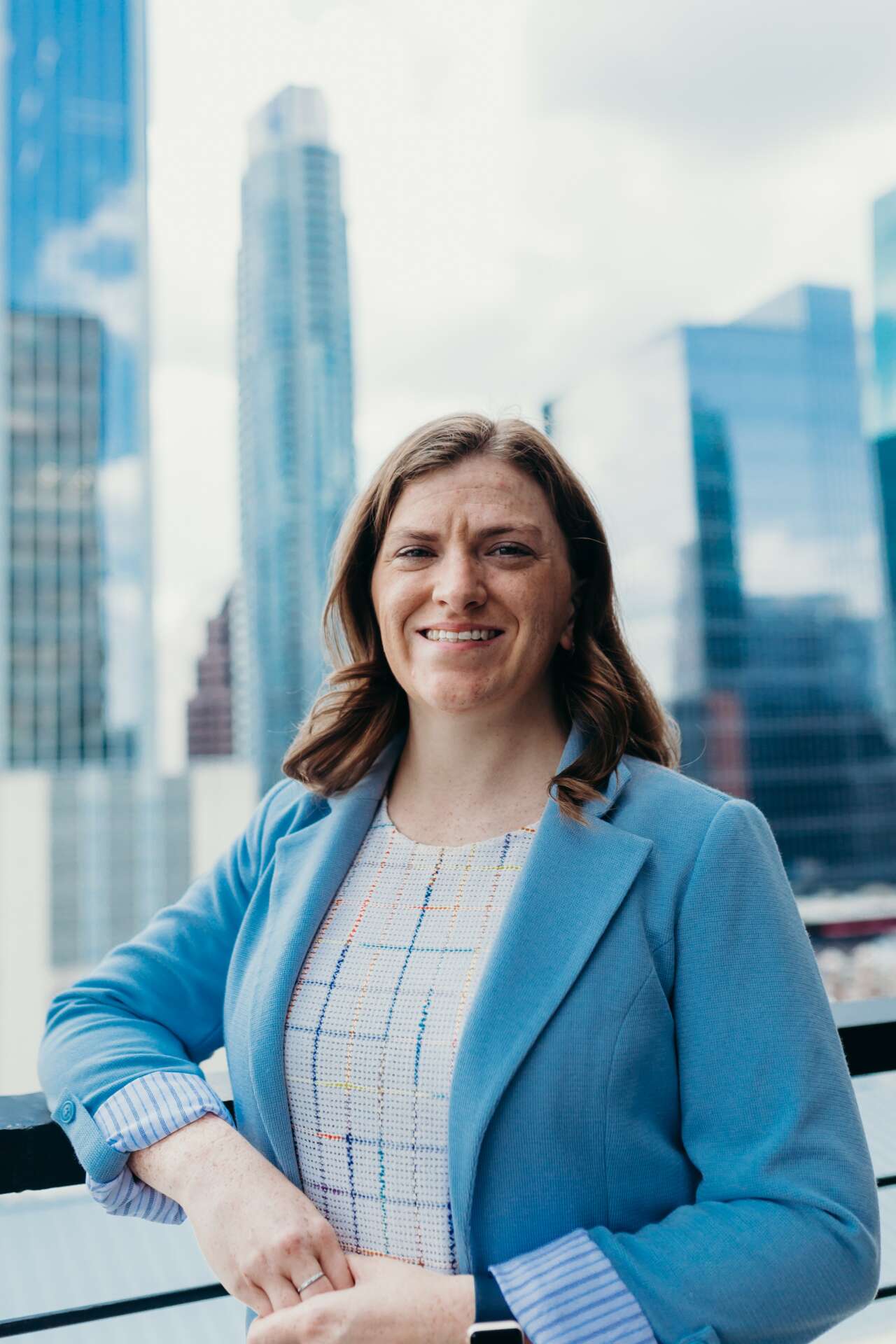We’re excited to introduce you to the always interesting and insightful Betsy Hilliard. We hope you’ll enjoy our conversation with Betsy below.
Betsy, looking forward to hearing all of your stories today. So, let’s start with a hypothetical – what would you change about the educational system?
My job has two major components. First, building and maintaining a team of scientists able to solve our clients’ hard problems and second, making sure that everything that team delivers to our clients is technically sound and valuable. I see the first as the most crucial part of my job because I can’t do the second without a happy, driven, creative, stable team.
One of my biggest challenges to building a strong team and keeping them productive is training them to be generative when defining the problem. From an early age there is an emphasis in education on learning to solve a problem you’ve been given. Obviously, these are important skills, but I wish that there was more training on how to identify the real problem and how to frame that problem in a way that you can solve. Some of my junior scientists come in wanting an assignment to complete by a deadline. For them to advance, I need to help them learn how to assess a business situation, identify the issues, and craft a problem definition we can solve.
Learning to design a problem gives you ownership of your work and brings creativity into your career. To prepare students to take that leap, we need to give them more open ended problems to solve. Give them information about what the issue is and let them define what problem to solve and how to frame an approach.

Great, appreciate you sharing that with us. Before we ask you to share more of your insights, can you take a moment to introduce yourself and how you got to where you are today to our readers
I am the Chief Science Officer at Valkyrie, an Artificial Intelligence and Machine Learning consulting firm based in Austin, TX that build custom AI solutions for our clients. That’s the dictionary definition of Valkyrie. I see Valkyrie as a team of 35 people, mostly Scientists by training, and all scientifically minded, who love solving hard problems. Unlike some others in the consulting/AI space, we aren’t selling an off the shelf product, and we don’t force the newest buzz word AI/ML on our clients. We identify client problems and find the right approach to solve those problems, whatever the solution looks like.
Three and a half years ago I wasn’t so sure about joining a small start-up. I’d only worked for large tech and financial companies, and government and academic labs, as had all of my family. Stepping into the world of a smaller, independent company felt a little risky. I am so glad I took the risk! Working for a company where I know not just every employee, but also their significant other and pets builds a wonderful culture. I feel more fulfilled by my work because I’m not a cog in a vast wheel. I also feel more secure in my career because I have more control over my impact and insight into what the company is doing.
Do you have any insights you can share related to maintaining high team morale?
My best advice for managing a team is to identify what makes work fulfilling for each individual. You can ask them outright, but in my experience people are only partially able to verbalize what really makes them tick. You have to observe what they choose to do when they aren’t asked and really listen when they bring up concerns. Once I know what satisfies each employee, I am better able to understand conflict on teams, identify why morale is low, and plan for how to support and motivate employee growth.
Sometimes, especially in a small company, I don’t have the option to put every member of my team on a client project that is going to be fulfilling for them. However, if I know an employee isn’t fulfilled in their current client work I can look out for opportunities to give them side tasks that are more satisfying for them personally.


Learning and unlearning are both critical parts of growth – can you share a story of a time when you had to unlearn a lesson?
As a scientist, I was trained to present information very differently from how I need to present our work to clients. I think about things in an algorithmic or step-by-step way. Almost like reading from a recipe or lab notebook. “We did this; this didn’t work; then we did that; this solved this problem; then everything came together and here is our solution for you.” We’ve found this approach doesn’t work well for our business.
We need to tell the story in a more iterative way that tells the simplest complete story first, then gets progressively more and more detailed. Scientists loathe being vague or imprecise. It’s a challenge to step back and figure out how to take our clients on a journey that builds up their understanding and maintains their motivation and curiosity to keep listening to us.
I remember, several years ago, working on a presentation that had initially flopped with a client. By the end of edits, my slides were basically in the exact opposite order from my original outline.
Contact Info:
- Website: https://valkyrie.ai/
- Instagram: https://www.instagram.com/valkyrieintel
- Linkedin: https://www.linkedin.com/in/betsy-hilliard/
- Twitter: https://twitter.com/ValkyrieIntel


